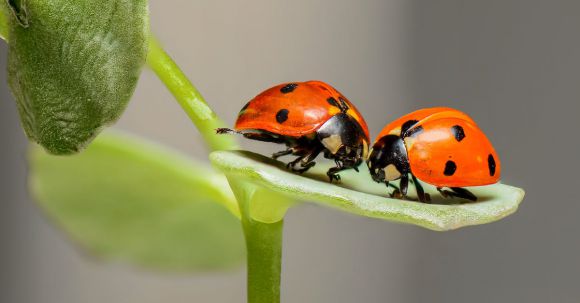Insects are some of the most abundant creatures on Earth. With over one million known species, they make up more than half of all living organisms. From beetles to bees, ants to butterflies, these tiny creatures have conquered nearly every corner of the planet. But what makes them so successful? In this article, we will explore the incredible adaptations and evolutionary advantages that have allowed insects to thrive and dominate the Earth for millions of years.
Adaptability: Masters of Survival
One of the key reasons for the success of insects is their remarkable adaptability. They can be found in almost every habitat on Earth, from the freezing Arctic tundra to the scorching deserts. Insects have evolved a wide range of physiological and behavioral adaptations that allow them to thrive in diverse environments.
Their small size and lightweight exoskeletons enable them to navigate through narrow crevices and exploit resources that larger animals cannot access. Furthermore, their ability to reproduce rapidly and in large numbers gives them a significant advantage in colonizing new habitats and quickly adapting to changing conditions.
Flight: A Game Changer
Insects were the first group of animals to evolve the ability to fly, and this has had a profound impact on their success. Flight allows insects to search for food, mates, and suitable habitats over vast distances. It also provides them with a means of escaping predators and finding refuge when conditions become unfavorable.
The intricate wing structure of insects enables them to perform extraordinary aerial maneuvers, such as hovering, gliding, and even flying backward. This exceptional agility gives them a distinct advantage in evading predators and outcompeting other organisms for resources.
Specialized Morphology and Physiology
Insects possess an incredible range of specialized adaptations that allow them to exploit a wide variety of food sources. Their mouthparts have evolved into diverse forms, including piercing-sucking mouthparts in mosquitoes, chewing mouthparts in beetles, and siphoning mouthparts in butterflies. This diversity in feeding strategies enables insects to exploit nectar, blood, plant sap, decaying matter, and even other insects.
Furthermore, insects have highly efficient respiratory systems that allow them to extract oxygen from the air more effectively than most other animals. Their small size and efficient circulatory systems facilitate the rapid delivery of oxygen and nutrients to their cells, enabling them to sustain high metabolic rates.
Social Organization: Strength in Numbers
Many insect species have evolved complex social structures, such as ant colonies and bee hives. These social insects demonstrate remarkable cooperation and division of labor, which greatly enhances their chances of survival. Tasks are distributed among different castes, with individuals specializing in roles such as foraging, defending the colony, or caring for the young.
The ability of social insects to work together and communicate effectively through chemical signals or intricate dances has allowed them to build elaborate nests, efficiently exploit resources, and defend against predators. This high level of social organization has undoubtedly contributed to the success of insects as a whole.
Conclusion: The Reign of the Insects
Insects have undoubtedly earned their title as the most successful animals on Earth. Their adaptability, flight capabilities, specialized adaptations, and social organization have allowed them to thrive in virtually every ecosystem on the planet. Their ecological roles as pollinators, decomposers, and predators are crucial for maintaining the balance of ecosystems.
However, it is important to recognize that the success of insects is not without its challenges. Human activities, such as habitat destruction, pesticide use, and climate change, pose significant threats to their survival. Therefore, it is crucial that we appreciate and protect these incredible creatures to ensure the continued health and biodiversity of our planet.





